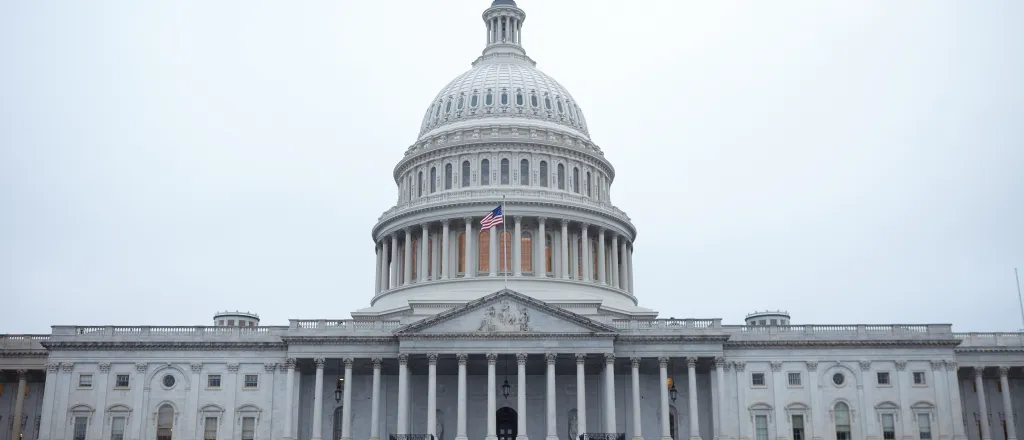
With two weeks until the money runs out, Congress grinds to halt on spending bills
(Colorado Newsline) Amid rising tensions and an approaching hard deadline, the U.S. House and Senate ended their work week Thursday without a deal to fund the federal government past the end of the month.
House Speaker Kevin McCarthy, who has been struggling to build consensus among the members of his Republican Conference, pledged that once the chamber returned from the weekend, lawmakers would roll up their sleeves.
“When we come back, we’re not going to leave. We’re going to get this done,” McCarthy said, noting members are returning home this weekend for the Rosh Hashana holiday. “Nobody wins in a government shutdown.”
The House returned to Washington, D.C., Tuesday following a six-week summer recess. The Senate returned last week following a five-week break. The government funding deadline is Sept. 30.
McCarthy told reporters following a heated closed-door meeting for House Republicans on Thursday morning that he is “frustrated” with some lawmakers for blocking debate on the annual Defense spending bill.
Some especially conservative House Republicans have been threatening to try to remove McCarthy as speaker through the motion to vacate, which any one lawmaker can bring up for a floor vote. Florida’s Matt Gaetz gave a floor speech Tuesday, arguing that McCarthy was out of line with promises he made in private to hard-line Republicans in January.
McCarthy, according to multiple media reports, reportedly said behind closed doors Thursday that if lawmakers want to remove him they should “file the f****** motion.” McCarthy’s office would not share any comments he made during the closed-door conference meeting in response to a question from States Newsroom.
McCarthy pledged after the meeting to try to put more of the dozen annual government funding bills on the floor next week, though if that doesn’t happen, he plans to tell appropriators to begin working out final bills with their Senate counterparts during the conference process.
McCarthy, who has repeatedly criticized past leaders for not passing all the bills on the floor, said that going to conference with the committee-passed bills “is better for the American public — then they can see what has gone through committee.”
The House and Senate Appropriations committees’ bills were publicly released earlier this summer with committee debate and votes live-streamed. The conference process takes place behind closed doors.
McCarthy didn’t lay out a plan to pass the short-term government funding bill that will be needed to prevent a partial government shutdown when the new fiscal year begins Oct. 1. But he did express opposition to a funding lapse.
“I don’t think it’s productive to have a government shutdown during that time,” McCarthy said. “I don’t know who wins and I don’t know — watching the shutdowns before — how is that productive to get the objectives that you want to achieve for the American public.”
‘Dysfunctional’ House
The House passed one of its dozen annual government funding bills on the floor this year before conservative hardliners blocked the process from moving forward.
Arkansas Republican Rep. Steve Womack, chair of the Financial Services appropriations subcommittee, said Wednesday the chamber’s inability to pass its bills shows it’s “dysfunctional” and “conflicted.”
“Time is running out on us to be able to get our work done and not threaten a shutdown, or not have to go to a temporary CR, which is now pretty much guaranteed,” Womack said, referring to a continuing resolution.
Montana Democratic Sen. Jon Tester expressed frustration Thursday with the House’s lack of floor action on spending bills, saying that without more House-passed bills, the Senate cannot bring more of its bipartisan bills to the floor.
“You guys know the process, House needs to send something over,” he told reporters.
The Constitution requires spending bills to be a product of the House, so the Senate needs that chamber to send them so-called legislative vehicles. Once that happens, the Senate can swap in its version of the government funding bills.
Tester said he’s “very concerned” about a government shutdown and that lawmakers won’t be able to approve a supplemental spending bill for Ukraine, given the state of the House Republican Conference.
“These guys don’t give a s*** about nothing,” Tester said.
Wisconsin’s Johnson blocks Senate action
Shortly after Tester’s remarks, his own chamber’s spending process came to a halt.
After senators voted 91-7 to advance a three-bill spending package, Wisconsin Republican Sen. Ron Johnson objected to scheduling votes on amendments from his fellow GOP senators.
Johnson told reporters afterward that he would prefer if the Senate debated one spending bill at a time, instead of three.
“We need to return some function to this place, so pretty simple objection,” Johnson said. “Let’s just proceed to this one bill. What’s wrong with that? Just go on to Military Construction and VA. Let’s proceed to that and pass it, then wait for the House to send its other bills. Makes a lot of sense.”
The spending package on the Senate floor includes the Agriculture, Military Construction-VA and Transportation-HUD funding measures — funding the departments of Agriculture, Food and Drug Administration, Veterans Affairs, Transportation and Housing and Urban Development, as well as military construction and water projects.
The so-called minibus is a somewhat common part of the annual appropriations process and can be used when the upper chamber has a limited number of legislative vehicles.
Maine’s Susan Collins, the top Republican on the spending panel, said she was “both surprised and disappointed” that Johnson objected to scheduling floor votes on amendments from several GOP senators.
If the Senate couldn’t debate and vote on amendments to the government funding bills, Collins said, that meant the chamber was “broken once again.”
“Members cannot have it both ways,” Collins said. “They cannot block floor consideration of appropriations bills that were unanimously reported by the committee and yet maintain that they don’t want an omnibus bill. It’s one or the other. Or a government shutdown.”
Collins said Johnson’s blockade was setting Congress up for either a 12-bill omnibus government funding package or a partial government shutdown.
“None of those outcomes serve the American people well,” Collins said.
The blocked Republican amendments, which Collins said were just the first of several batches, were offered by Kentucky’s Rand Paul, Ohio’s J.D. Vance, Iowa’s Joni Ernst, Tennessee’s Marsha Blackburn and Utah’s Mike Lee.
Bipartisan work in Senate
Johnson’s move follows months of bipartisan work by the spending committee to advance bipartisan bills.
Senate Appropriations Chair Patty Murray, a Washington Democrat, said the stalemate could upend those efforts.
“Let’s be clear: the bills we are considering aren’t Democratic or Republican spending bills. They are bills both sides, Democrat and Republican, wrote after a lot of negotiation and compromise,” Murray said.
“This package that we have reflects input from senators from across the country and across the political spectrum working on behalf of the people who sent them here,” Murray added. “And that is exactly why all these bills in this package passed our committee unanimously.”
Senate Majority Leader Chuck Schumer, a New York Democrat, called on Republican leaders to reject the ultra conservative members of their party who are holding up spending bills in both chambers.
“Now all of a sudden, you have a group, a small group in the Senate, trying to mimic the Freedom Caucus in the House and holding up the (spending) bill,” Schumer said. “Our Republican leaders have to reject this MAGA Republicanism for the good of the country and for the good of their party.”
Samantha Dietel contributed to this report.
Colorado Newsline is part of States Newsroom, a network of news bureaus supported by grants and a coalition of donors as a 501c(3) public charity. Colorado Newsline maintains editorial independence. Contact Editor Quentin Young for questions: info@coloradonewsline.com. Follow Colorado Newsline on Facebook and Twitter.
















